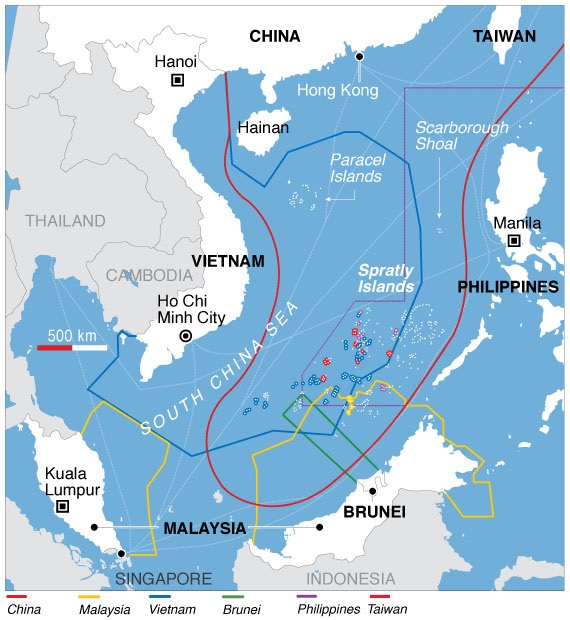The US sailed a warship near a Chinese-claimed reef in the disputed South China Sea on Wednesday, the first such maneuver since China enacted a new law requiring foreign vessels to report themselves when entering Beijing’s claimed territorial waters.
As expected, the US ignored the new law, and the maneuver drew a sharp rebuke from Beijing. “The actions of the US side seriously violated China’s sovereignty and security, which is further solid evidence of its aggressive navigation hegemony and militarisation of the South China Sea,” said Col. Tian Junli, a spokesman for China’s People’s Liberation Army (PLA). Tian added that the US is the “biggest destroyer” of peace and stability in the region.
The US Navy’s Seventh Fleet said the guided-missile destroyer USS Benfold passed within 12 nautical miles of Mischief Reef, a feature of the Spratly Islands that is controlled by China and also claimed by the Philippines and Vietnam. After China’s rebuke, the Seventh Fleet updated its statement, calling the Chinese statement “false.”
“The PLA’s statement is the latest in a long string of PRC actions to misrepresent lawful US maritime operations and assert its excessive and illegitimate maritime claims at the expense of its Southeast Asian neighbors in the South China Sea,” the Seventh Fleet said.
Since the Obama administration, the US has inserted itself into the maritime dispute between China and its Southeast Asian neighbors. In 2015, the US started sending warships near Chinese-claimed islands on a regular basis, what the Pentagon calls Freedom of Navigation Operations (FONOPs).
FONOPs to challenge China increased during the Trump administration. In 2020, the US conducted nine FONOPs in the South China Sea, a record high. Wednesday’s maneuver marks the fifth FONOP in the South China Sea this year.



